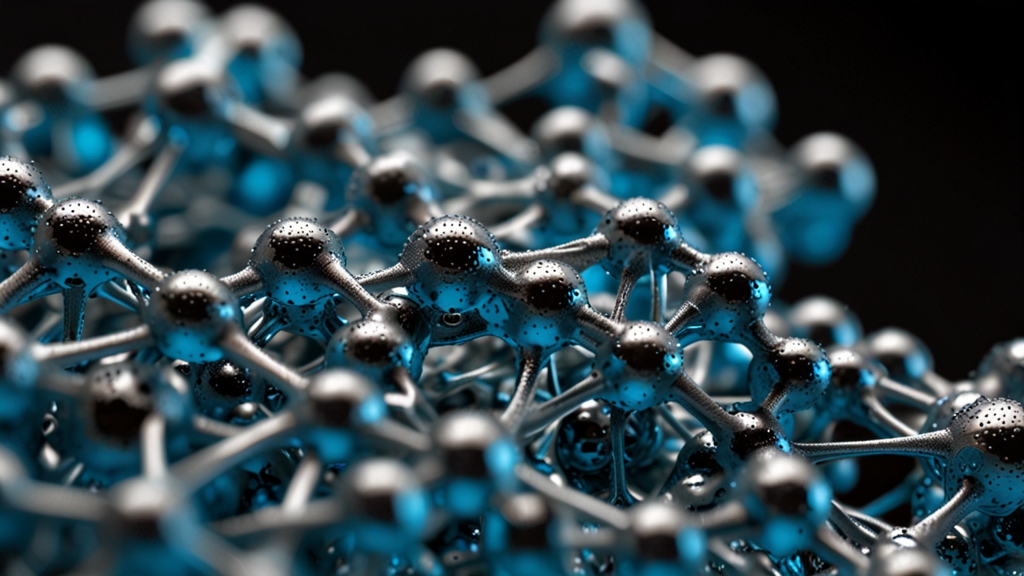The Wonders of Nanotechnology Chemistry on a Molecular Scale
Nanotechnology chemistry continues to unlock thrilling possibilities by manipulating matter on a molecular scale. This groundbreaking field seamlessly merges engineering and chemistry, enabling scientists to construct and deconstruct matter at the atomic and molecular levels. The intricate dance of molecules and atoms results in transformative applications across various industries, influencing everything from medicine to environmental sustainability.
What is Nanotechnology Chemistry?
At its core, nanotechnology chemistry involves working with materials and devices less than 100 nanometers in size. This is about one-thousandth the width of a human hair. By understanding and exploiting the unique properties of materials at this scale, scientists have developed novel ways to create stronger, lighter, and more efficient products. The behavior of materials at the nano-level often differs significantly from their behavior at a macro scale, providing an exciting frontier for discovery and innovation.
Applications in Medicine
One of the most promising areas for nanotechnology chemistry is in the field of medicine. Nanoparticles can be engineered to target specific cells, allowing for highly targeted drug delivery systems that minimize side effects and maximize therapeutic efficacy. For instance, in cancer treatment, nanoparticles can deliver chemotherapy drugs directly to tumor cells, reducing damage to healthy cells.
“Nanotechnology offers unprecedented precision in treating diseases at the cellular level, ushering in a new era of personalized medicine.”
Moreover, nanotechnology has catalyzed advancements in diagnostic tools. Nanoparticles can be designed to bind with biomolecules associated with certain diseases, creating highly sensitive sensors that can detect diseases at their earliest stages.
Environmental Impact
Nanotechnology chemistry also plays a critical role in environmental sustainability. Innovations in this field can contribute to cleaner energy sources and more efficient waste management. For example, nanomaterials are being developed for superior performance in solar cells, leading to more efficient conversion of sunlight into electricity. Similarly, nano-filters can remove toxins from water sources more effectively than traditional methods.
“By rethinking materials and processes at the nano-level, we can devise solutions that address some of the most pressing environmental challenges of our time.”
Moreover, nanotechnology can enhance the environmental friendliness of manufacturing processes. Engineered nanocatalysts can accelerate chemical reactions at lower temperatures and pressures, reducing energy consumption and minimizing waste.
Industrial and Consumer Products
Beyond healthcare and environmental applications, nanotechnology chemistry has revolutionized a broad spectrum of industrial and consumer products. In the electronics industry, nanoscale components are the backbone of faster, smaller, and more efficient devices. This includes the development of quantum dots for advanced display technologies and carbon nanotubes for future generations of microprocessors.
In consumer products, nanotechnology has made significant contributions to improving the durability and functionality of everyday items. Clothing with nanofibers can be water and stain-resistant, while nanocoatings can make surfaces scratch-proof and self-cleaning.
“The integration of nanotechnology into everyday products enhances performance and durability, offering consumers unprecedented value and convenience.”
As we continue to explore and understand the full potential of nanotechnology chemistry, the implications for society are profound. By tailoring materials at the atomic and molecular levels, we can engineer unprecedented solutions that address critical issues and improve the quality of life. The future of nanotechnology chemistry is bright, promising a realm of possibilities limited only by our imagination.
Conclusion
Nanotechnology chemistry is a fascinating area of exploration that holds the potential to revolutionize multiple industries. Through meticulous manipulation of matter on a molecular scale, this field offers innovative solutions to some of the world's most pressing problems, from healthcare to environmental sustainability. As research and development in nanotechnology chemistry continue to advance, we can expect to see even more groundbreaking applications that will shape the future.












